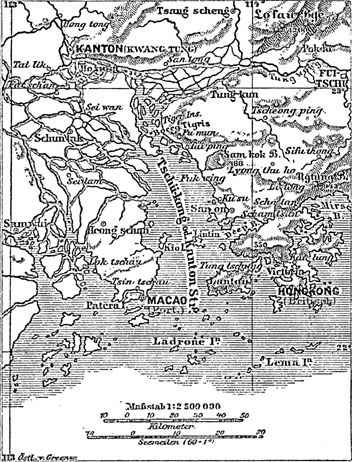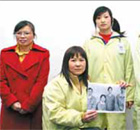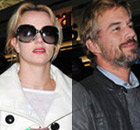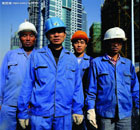The City of Macao
History
(wikipedia.org)
Updated: 2009-12-17 10:11
 |
Large Medium Small |
Macao was a barren fishing village with a population of about 400 before the Portuguese arrived in the 16th century, during the Age of Discovery.
|
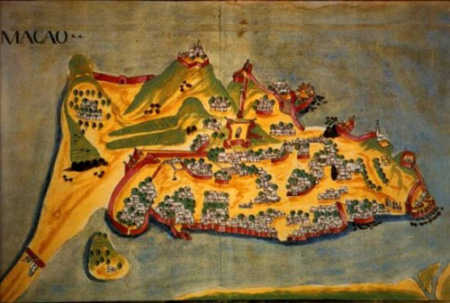 Map of Macao Peninsula in 1639 [wikipedia.org]
|
In 1535, the Portuguese traders obtained by bribing the right to anchor ships in Macao harbors and engage in trading activities. Portuguese and Chinese merchants flocked to Macao, and it quickly became an important regional trading center in Portugal's lucrative trade along three major routes: Macao-Malacca-Goa-Lisbon, Guangzhou-Macao-Nagasaki and Macao-Manila-Mexico.
However, with the decline of Portugal as a world power in the 17th and 18th centuries, the trading routes were challenged by other powers such as the Dutch and the British. After China ceded Hong Kong to the British in 1842, Macao's position as a major regional trading center declined further still because larger ships were drawn to the deep water port of Victoria Harbor.
In an attempt to reverse the decline, from 1848 to the early 1870s Macao engaged in the infamous trade of coolies (slave laborers) as a transit port, shipping locals from southern China to Cuba, Peru, and other South American ports to work on plantations or in mines.
Fishing re-emerged as a dominant economic activity in Macao as it lost its position as a regional trading center. In the early 1920s, over 70% of Macao's 84,000 residents were engaged in fishing. Meanwhile, some other businesses started to develop, such as matches, firecrackers, incense and fishing-boat building. But the most notable was the gambling business.
Gambling was first legalized in the 19th century in an attempt to generate revenues for the government. The first casino monopoly concession was granted to the Tai Xing Company in 1937. The company was, however, too conservative to fully exploit the economic potential of gambling.
|
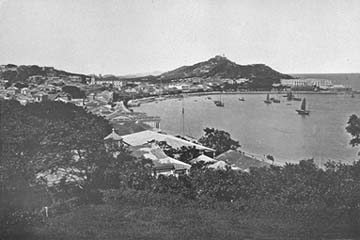 Macao, ca. 1870 [wikipedia.org]
|
The industry saw a major breakthrough in 1962 when the government granted the Sociedade de Turismo e Diversoes de Macao (STDM), a syndicate jointly formed by Hong Kong and Macao businessmen, the monopoly rights to all forms of gambling. The STDM introduced western-style games and modernized the marine transport between Macao and Hong Kong, bringing millions of gamblers from Hong Kong every year.
In the 1970s Macao also saw a rapid development in its manufacturing sector. With Macao's low-cost operating environment and its surplus quotas under the Multi Fiber Arrangement (MFA), many Hong Kong industrialists established textile and garment manufacturing bases in Macao.
At its golden age in the 1980s, the manufacturing sector accounted for about 40% of Macao's GDP; textiles and garments accounted for about 90% of Macao's total visible exports.
However, the manufacturing sector has experienced a gradual decline since the early 1990s due to phasing out of the MFA quota system and the rising labor costs relative to the Chinese mainland and Southeast Asian countries.
|
|
Macao's checkered past
1557
The Portuguese settle down in Macao
1887
Unequal treaties are signed between Portugal and the Qing government trying to legalize the occupation of Macao and its two outlying islands
1961
Gambling is legalized
1972
China's representative to the UN declares that the country shall, when conditions ripen, properly resolve the Hong Kong and Macao issues through peaceful means. Before that, it will maintain the status quo of the two regions
1974
The Portuguese government admits Macao is Chinese territory
1975
The last batch of Portuguese troops leaves Macao
Feb 8, 1979
China, Portugal establish diplomatic relations, and agree to solve the Macao issue through negotiations
April 13, 1987
Joint declaration is signed after four rounds of talks, stipulating China will exercise sovereignty over Macao from Dec 20, 1999
March 31, 1993
The Basic Law of Macao is passed by the National People's Congress
Dec 20, 1999
Macao is handed over to the motherland


